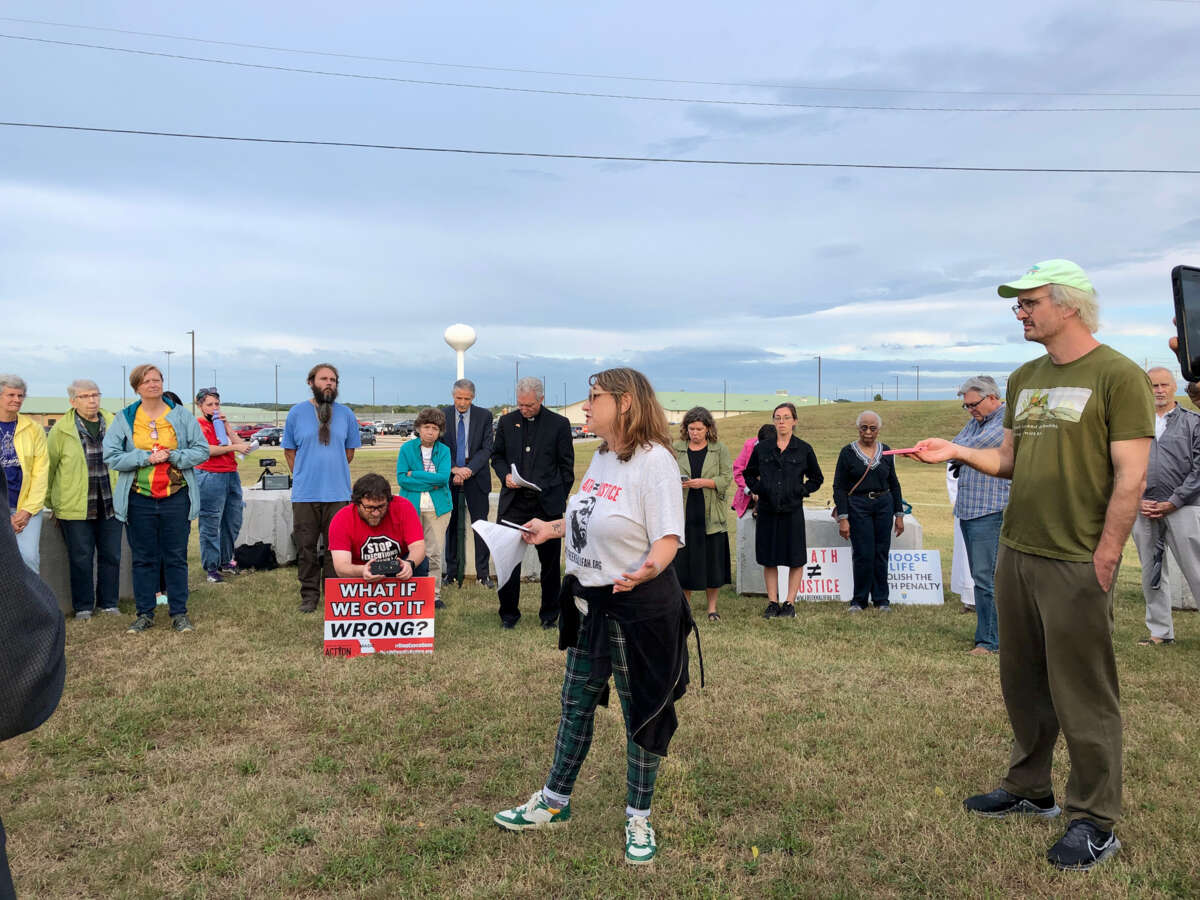Part of the Series
The Road to Abolition
Support justice-driven, accurate and transparent news — make a quick donation to Truthout today!
The State of Missouri put its lethal hands on another of its longtime death penalty captives on Tuesday evening in Bonne Terre, prematurely ending his life with a poison injection of pentobarbital.
The state-sponsored killing of Marcellus Williams took place at the Eastern Reception, Diagnostic and Correctional Center, the same prison where the state executed Brian Dorsey in April and David Hosier in June. Williams adopted the name Khaliifah ibn Rayford Daniels after converting to Islam, and is widely known as Khaliifah.
Missouri has normalized this terrible culling of its prison population, granting itself license to kill in all four seasons. The next execution is already slated for December 3, and if the tragedy on Tuesday offers any paramount lesson, it’s that in 2024, under Gov. Mike Parson’s theory of governance, the schedule sets the pace of destruction of human life. No matter how compelling, important or warranted, requests for deviations from the schedule are unwelcome, and will be treated as hostile communiqués from potentially rebellious subjects.
Pronounced dead at 6:10 pm local time, Khaliifah was a 55-year-old Black man born in Logansport, Indiana – a father, a grandfather, and a man who found both poetry and Islam inside prison walls. Khaliifah became an imam serving Muslims in Potosi Correctional Center, where he lived for 24 years. He was represented by the Midwest Innocence Project, a specialty law practice that works to secure exonerations of wrongfully convicted individuals based on forensic DNA evidence. Khaliifah’s lawyers’ once-promising case unexpectedly went south last month when members of the original prosecutorial team admitted in court to handling the murder weapon multiple times without gloves during his 2001 trial, tainting the evidence that might have set him free.
Whoever did attack Felicia Gayle Picus, a respected social worker and St. Louis Post Dispatch journalist slain in her own home in 1998, is and has been infinitely harder to identify as a result.
Nimrod Chapel Jr., president of Missouri NAACP, and board chair of Missourians to Abolish the Death Penalty, said as much during a #FreeKhaliifah Telethon on September 17:
“Surely, it’s as if they threw the knife in a furnace.”
“Governor Mike Parson demonstrated how the death penalty is wielded without regard for innocence, compassion, equity, or humanity. He showed us how the standard of ‘beyond a reasonable doubt’ can be applied selectively.”
A moment later, he extended his thought, saying, “We’ve got these Jim Crow politicians in the state of Missouri that still think the only place for a Black person is at the end of a knife.”
Acknowledging the gravity of their predecessor’s many mishaps from the original trial, the current St. Louis County prosecutor offered an Alford Plea — Khaliifah would change his original “not guilty” plea to “no contest” in exchange for life without parole, a move he reluctantly accepted last month as a last-ditch act of self-preservation. But even those crumbs, a bitter substitute for exoneration and liberty, were brushed off the table when lawyers from Missouri Attorney General Andrew Bailey’s office intervened to undo the arrangement.
All other legal routes for relief from state and federal courts were foreclosed: an hour before the scheduled execution day, the U.S. Supreme Court refused his case and declined a motion to stay. On Monday, September 23, the governor addressed the clemency application that had been sitting on his desk since September 6, a packet that included multiple juror statements urging the governor to consider evidence they wished they’d known about in 2001. His lawyers emphasized Khaliifah’s spiritual commitments and impact:
As a deeply faithful man whose spirituality informs every facet of his life, he has been chosen by his peers as their religious leader. He has dedicated himself to the tenets of his religion and to living a pious life.
Even during this time of personal challenges as his execution date approaches, Marcellus devotes each day to providing spiritual guidance and stability to the other prisoners in Potosi Correctional Center. To these men, many of whom have challenging existences, Marcellus is a beacon. If his light is extinguished, the prison will lose a guiding force. The story of Marcellus’ life calls for mercy — it is what justice requires.
These pleas failed to move Parson, who rejected the clemency application, and with it, Khaliifah’s last chance to live in the present tense. Khaliifah was the 11th Missourian executed on Parson’s watch since he took office in 2018, and the 100th since 1989.
Mercifully, he did not die alone as a number or a statistic. His imam was by his side, and his son, Marcellus Williams Jr., who was allowed into an adjacent room with a large window into the execution chamber, held his father’s loving gaze until the light faded from his gentle eyes.
“Who has so deeply wounded the state of Missouri that it has a blood thirst like this?”
When Khaliifah’s son emerged from the prison in Bonne Terre, he joined 94 moral witnesses who had gathered in vigil. He told those who asked that his father “had been in a good head space” and that they had expressed warmth and love to each other in his father’s last moments. He told Truthout, “My dad was an intelligent man, a beautiful man, and I loved him. His last wishes for me were to move forward in a positive space. So that’s what I’m doing.”
Khaliifah is survived by his poetry as well as his loved ones. In one poem about the climate crisis, titled “The Net Zero/Morality Equation,” he wrote:
Indeed corruption does appear upon the land and sea
– as a direct result of what hands have done clearly
now a question is asked and put quite simply:
is it possible to return to a state of emission free?
Linguistics scholar and poet Alysia Nicole Harris lifted up Khaliifah’s poetry on the day of his death by publishing a piece called “Grieving a Murder,” which offered a close reading of “The Net Zero/Morality Equation.”
“Out of Khaliifah’s practiced and intentional curation of words emerges a hidden subtext,” Harris wrote. “We read about environmental contamination on the poem’s surface, but the conditions under which the poem was written percolate to the surface. The poet writing about climate crisis is someone the state wrongfully and willfully intends to execute today.”
Kamau Franklin of Community Movement Builders, a Black member-based collective at the forefront of the Stop Cop City struggle in Atlanta, called for steadfastness through the pain, telling Truthout, “Our movement must grow, even if the worst takes place. A movement has to withstand losses (as terrible as those are) to remain a movement.”
Franklin emphasized the need to stay rooted in a politics that challenges empire here and abroad.
“Our movement must grow to challenge the power of the state. The state has capital, institutions, violence, and narrative control on its side. We only have the people’s power as the basis of our struggle against the state. That is the power that needs to be both built and released to challenge the system. The movement is only as powerful as its ability to move people to action to fight for their interests.”
Khaliifah left the movement a parting gift, he said.
“Khaliifah’s execution is a searing example of how the state of Missouri exercises control over our lives. It shows us they have the power to shape how we live, where we live and how we die,” Franklin added. “This power is ultimately the power a movement must break.”
Between the exertions of Midwest Innocence Project and Missourians to Abolish the Death Penalty, there had been a storm of advocacy ahead of Khaliifah’s execution, some public-facing, some behind the scenes. Awareness of Khaliifah’s ordeal broke through to the national news cycle, receiving widespread coverage by mainstream newspapers and television reporters. Meanwhile The Intercept delved into the legal maneuverings in three separate reports.
In a statement Tuesday, U.S. Rep. Cori Bush articulated the core heartache.
“The deadly decision to execute Williams came despite urgent pleas from Missourians and people all across the country — including from Felicia Gayle’s family — who called for clemency. Governor Mike Parson didn’t just ignore these pleas and end Williams’ life; he demonstrated how the death penalty is wielded without regard for innocence, compassion, equity, or humanity. He showed us how the standard of ‘beyond a reasonable doubt’ can be applied selectively, depending on who stands accused and who stands in power.”
Kalonji Changa, founder of Black Power Media, who has been publicizing and discussing the injustice against Khaliifah on his channel, told Truthout that poor people, especially poor Black people, often talk about state-sanctioned executions as acts of war. In that context, he says, Khaliifah was deemed an “enemy of the state” simply by being Black and Muslim, and was dealt with as a combatant.
“When people in Missouri bear witness to the intentional end of someone’s life at the hands of the state, no matter the logic that they create around that reality, they will be induced with a trauma response.”
“Imagine the terror he faced knowing he had an expiration date from the state,” Changa said. “We have to be clear — the war is a physical war, it’s a mental war, and a spiritual war. We look at it as being systemic.”
Changa was deeply involved in the 2011 fight for Troy Davis in Georgia, another Black man with a strong innocence claim who was nonetheless executed. More recently, he and Joy James interviewed 37-year-old Kevin Johnson two weeks before he was executed at the Eastern Reception, Diagnostic and Correctional Center in 2022.
He scoffs at the notion the justice system is broken.
“The justice system is not broken,” he told Truthout. “It’s in full effect, stronger than ever. Because it’s designed to do what it does. And that’s to devour.”
Changa, a grandfather himself, wonders about the future for Khaliifah’s grandson.
“What life does he have coming forward knowing that his grandfather was murdered?” Changa asked.
LJ Punch, the medical director of the Bullet Related Injury Clinic in St. Louis, told Truthout he’s been stunned by the state’s relentlessness to move on this execution.
“I’m witnessing a level of intent from the state that I’ve not witnessed in this way before. I almost can’t fathom how intense of a posture the state is taking,” he said. But at the same time, he’s noticed it leaching into other realms.
“I even see health and social care taking those kinds of postures — hastening people’s deaths and profiting from people’s suffering. My question is: Who has so deeply wounded the state of Missouri that it has a blood thirst like this?”
According to Punch, a former trauma surgeon, the adverse effects from state violence are known to be widespread among the entire community.
“When people in Missouri bear witness to the intentional end of someone’s life at the hands of the state, no matter the logic that they create around that reality, they will be induced with a trauma response,” Punch said.
“I don’t care if you cherish this moment, celebrate this moment, or like so many organizers right now on the front line, are trying to prevent this from happening — you’ll have a trauma response which can do one thing and one thing only, which is breed more trauma, more harm, and create more violence.”
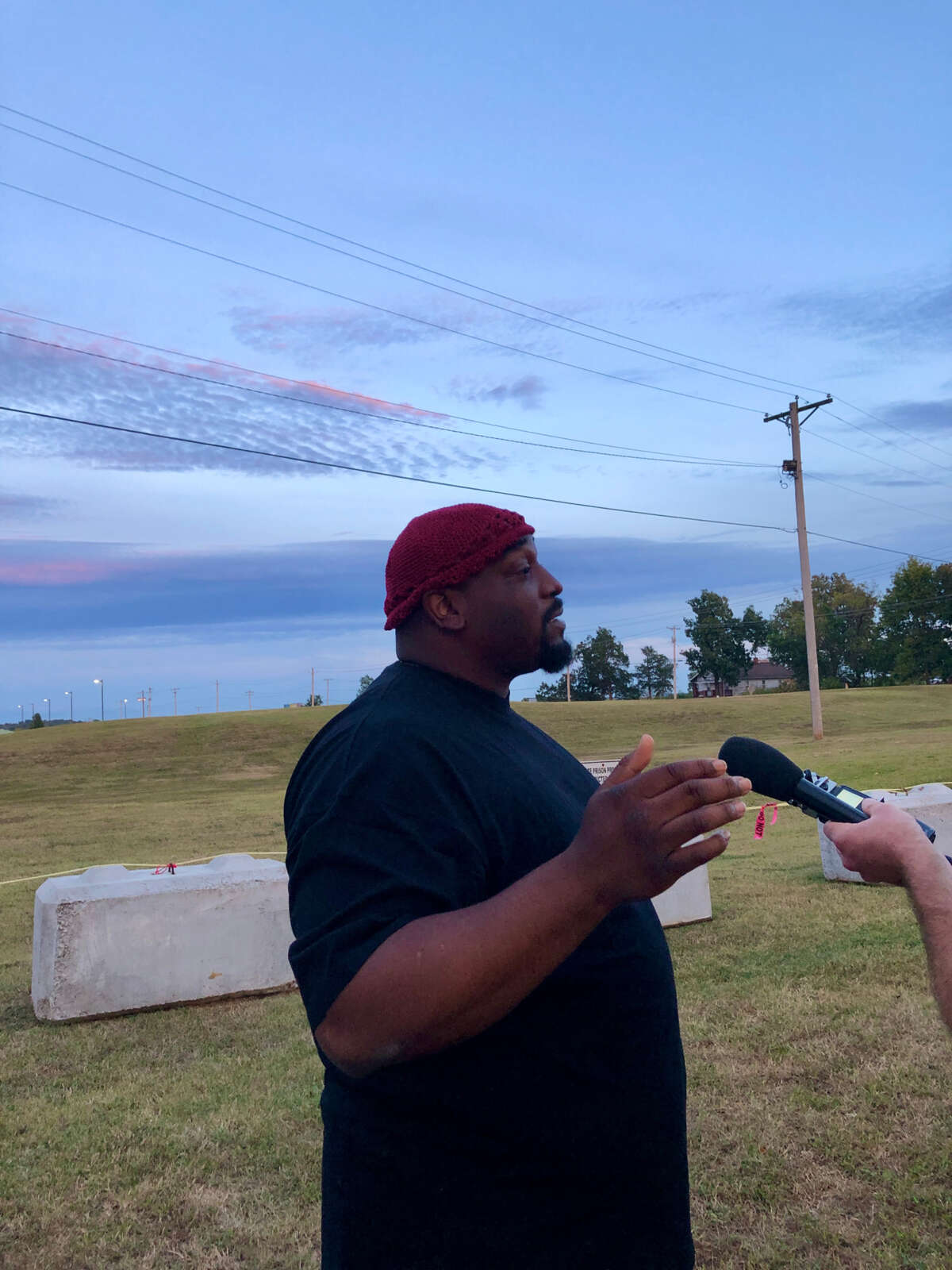
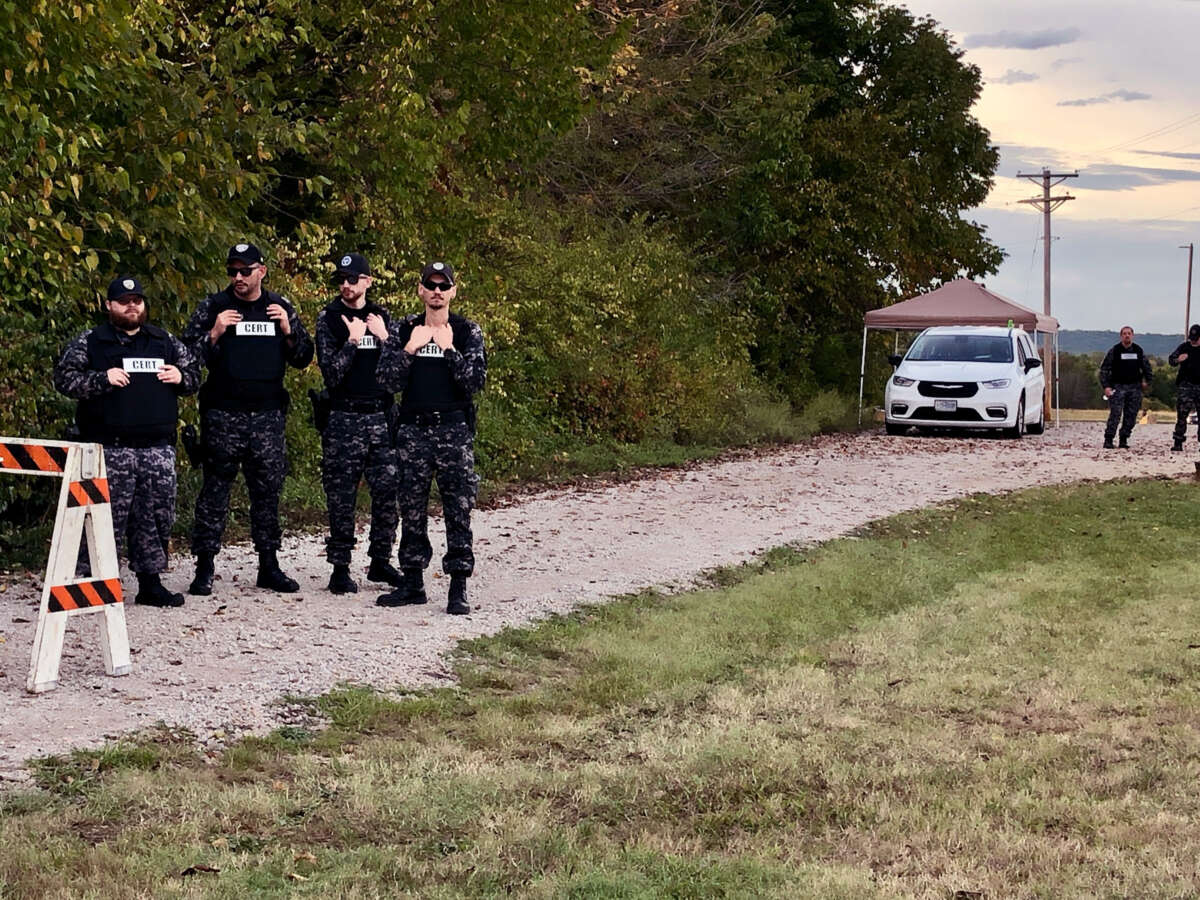
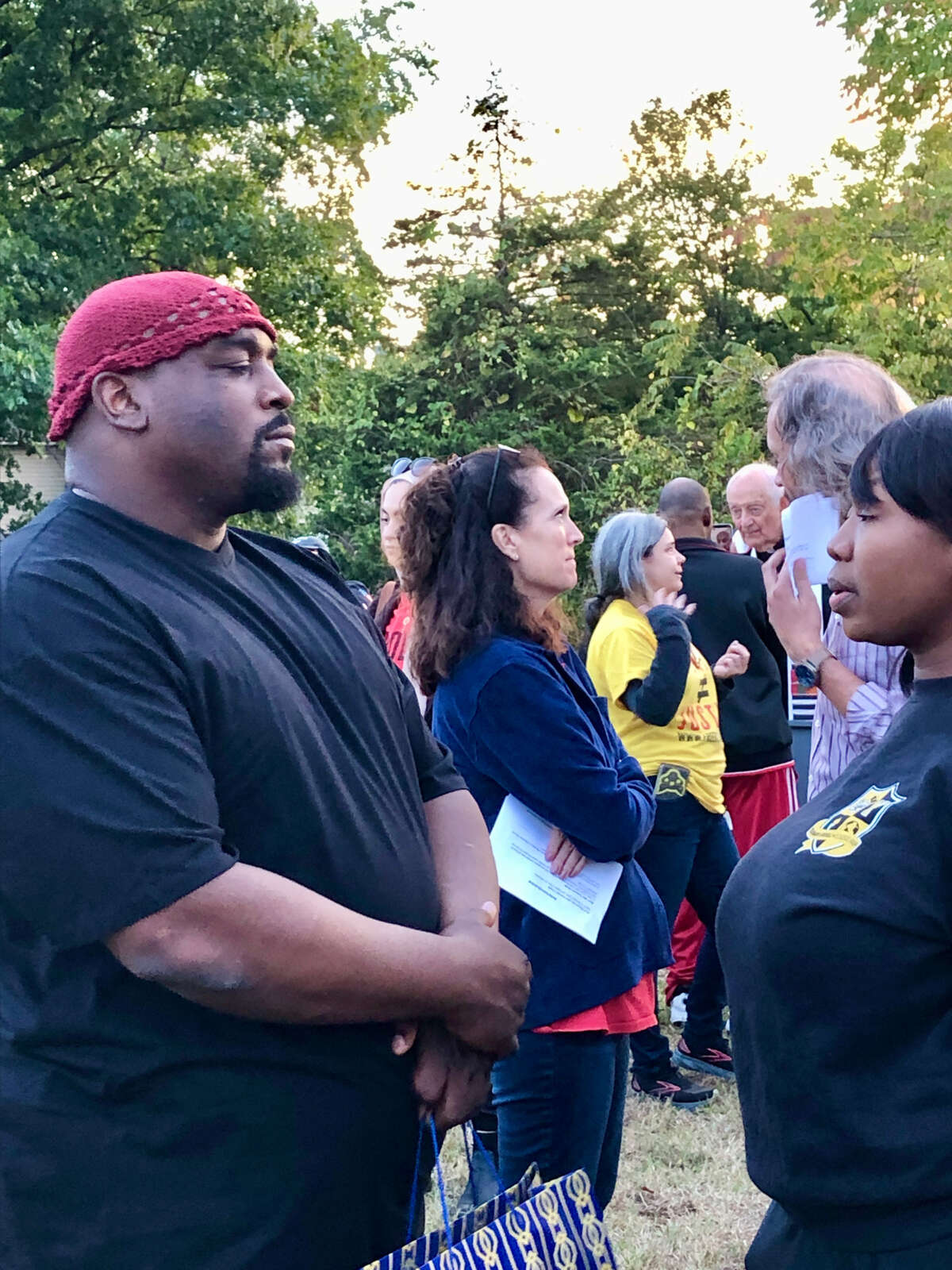
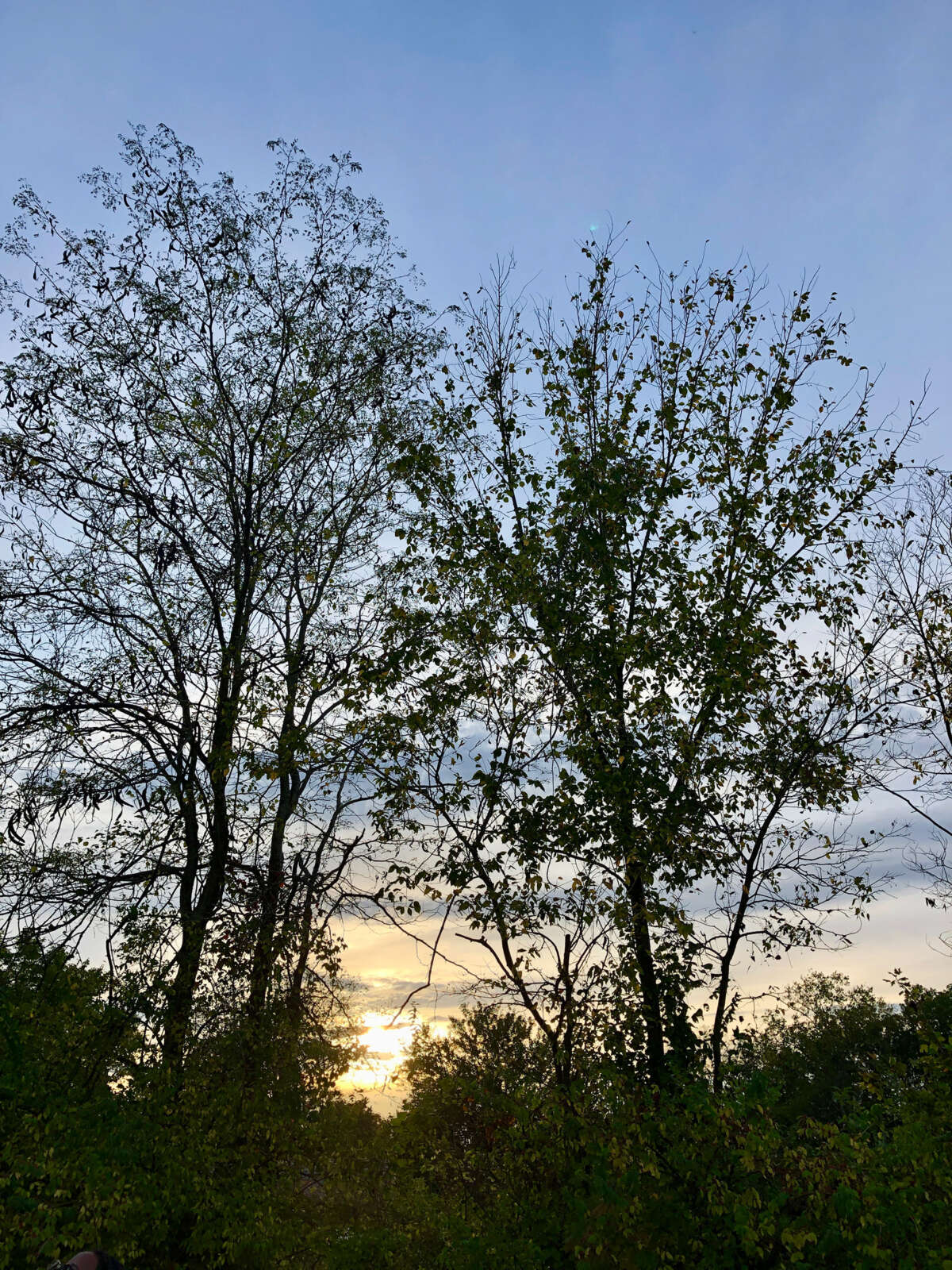
A terrifying moment. We appeal for your support.
In the last weeks, we have witnessed an authoritarian assault on communities in Minnesota and across the nation.
The need for truthful, grassroots reporting is urgent at this cataclysmic historical moment. Yet, Trump-aligned billionaires and other allies have taken over many legacy media outlets — the culmination of a decades-long campaign to place control of the narrative into the hands of the political right.
We refuse to let Trump’s blatant propaganda machine go unchecked. Untethered to corporate ownership or advertisers, Truthout remains fearless in our reporting and our determination to use journalism as a tool for justice.
But we need your help just to fund our basic expenses. Over 80 percent of Truthout’s funding comes from small individual donations from our community of readers, and over a third of our total budget is supported by recurring monthly donors.
Truthout has launched a fundraiser to add 340 new monthly donors in the next 5 days. Whether you can make a small monthly donation or a larger one-time gift, Truthout only works with your support.
